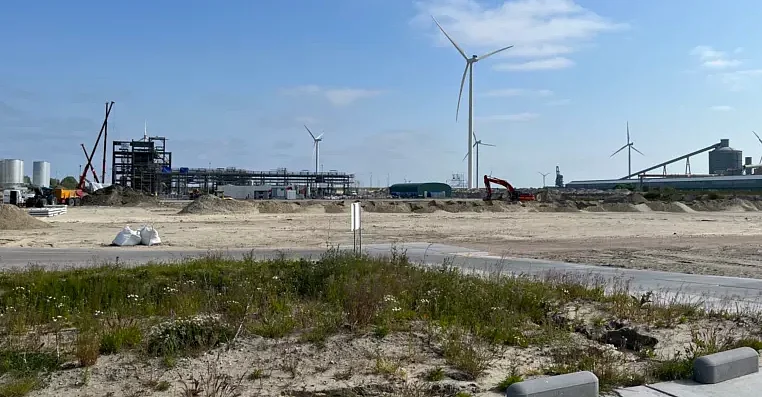80 Million for BioBTX, Which Creates Chemical Building Blocks from Plastic Waste
22-06-2024
The circular chemistry company BioBTX from Groningen has raised an investment of 80 million for the construction of its first large factory in Delfzijl. BioBTX converts plastic waste into so-called aromatics; chemical building blocks for everyday products such as PET bottles, batteries, and foam.

The technology used by BioBTX is called ICCP (integrated cascading catalytic pyrolysis), a form of chemical recycling based on pyrolysis. “With pyrolysis, materials are heated without oxygen, breaking the material down into smaller molecules,” says Tijmen Vries, responsible for strategy at BioBTX. “We add a second step to this. Using a catalyst, the molecules are partially reassembled. The result: BTX molecules, namely benzene, toluene, and xylene. It is the combination of these two processes that makes us unique.”
Circular chemical building blocks
Vries explains that in fossil-based chemistry, where oil is the main raw material, there are roughly seven chemical building blocks. With these building blocks, you can create essentially everything from plastics to medicines and from coatings to gels. Benzene, toluene, and xylene are three of these building blocks. The BTX molecules that BioBTX produces from plastic waste have exactly the same properties and quality as their fossil counterparts. “With our technology, we can thus provide three of the building blocks that are so important for the chemical industry.”
Plastic waste
BioBTX aims to produce these raw materials from plastic waste. The significant advantage of its technology is that the company can use mixed plastics. This means that plastic does not need to be sorted beforehand. Vries: “Soon, plastic waste will no longer be allowed to be transported to countries outside the EU. Therefore, entities that are left with plastic waste that cannot be mechanically recycled need to find a way to dispose of their waste.”
Currently, just over half of all our plastic waste is incinerated. “This essentially converts carbon into energy and CO2,” says Vries. “We want to keep the carbon in the chain for as long as possible to prevent CO2 from entering the atmosphere. This will also make us less reliant on the import of crude oil from other countries.”
Environmental impact of recycling
Chemical recycling via pyrolysis does involve a high energy demand. To break down molecules, temperatures can rise to several hundred degrees Celsius. However, the CO2 impact of this energy demand is, according to Vries, still lower than when BTX molecules are made from fossil fuels. “Taking into account the energy mix in the Netherlands, we have calculated that our technology has a 70% lower environmental impact than fossil BTX.”
With an investment of 80 million euros, BioBTX plans to scale up its ICCP technology. To this end, it will construct a new factory in Delfzijl that will annually process 20,000 tons of plastic waste into aromatics. “That 20,000 tons is still a drop in the ocean when you look at the entire demand from the chemical industry,” says Vries. “But it can be a starting point for the transition that the chemical sector also needs to undergo. Our building blocks can simply be blended with the fossil variant without requiring process adjustments.”
Factories worldwide
BioBTX intends to make a final investment decision by the end of this year. Once that is done, construction will start, and the factory should be operational by the end of 2026. At a later stage, the factory can scale up to process 50,000 tons of plastic waste annually. Vries: “Ultimately, we want to sell our technology as a licensing model to large chemical companies. This way, our factories can be established all over the world.”
The 80 million was raised from various sources. New investors, including Invest-NL, Infinity Recycling, and Covestro, along with existing investors Carduso Capital, NOM, and Groninger Groeifonds, contributed 42 million. A further 15 million was raised through the Polestar Capital Circular Debt Fund, 4 million from the province of Groningen, and 14 million from RVO.
This article previously appeared in Change Inc, editor Teun Schröder
